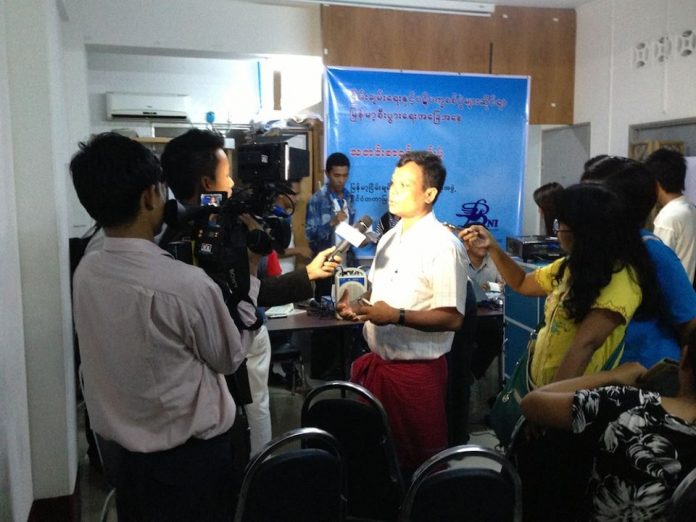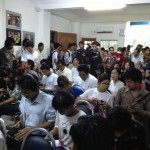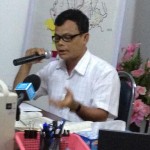Nan Paw Gay spoke at a Monday press launch of “Economics of Peace and Conflict” report at Myanmar Media Library Centre in Botataung Township, Rangoon Division.
The report produced by BNI’s Myanmar Peace Process Monitor team analyzes the economic factors that have fueled the protracted conflicts and subsequent investments following peace efforts. The team consulted with Nan Paw Gay and many others to write the report.
Land ownership, or the lack of, is the key issue facing most of the people residing in ethnic areas, Nan Paw Gay said.
“There are also a lot of famers who have to lose their lands when they cannot provide documents that prove they are the owners,” she said. Many find themselves renting plots from the new owners on land that their families have passed down for generations. The new owners are commonly the military and their families, or close business associates.
Nai Kasauh Mon, Independent Mon News Agency (IMNA) editor-in-chief; also part of the BNI network, blamed the former military regime’s Four-Cuts policy for the rampant poverty in the ceasefire areas. The policy was used by the Tatmadaw (Burma military) “to lessen the strength of (ethnic) people and ethnic armed groups” he told attendees of the press conference.
The Four-cuts policy was administered in the 1970 to cut off access to food, funds, information and recruitment for armed groups. But the Tatmadaw also applied this to the civilian population resulting in rampant human rights abuses, giving them a dominance of the available land and resources, according to Human Rights Foundation of Monland (HURFOM).
HURFOM’s Women and Child Rights Project (WCRP) and other human rights groups based along the Thailand-Burma border documented multiple cases, many involving women and children.
As a result of the policy, thousands fled to neighboring countries like Thailand, China and India. About 500,000 from the Karen ethnicity alone, lost their homes and land, now they are refugees in Thailand or internally displaced in Burma.
New reforms introduced by President Thein Sein, has allowed for the investigation of 700,000 acres determining if it should be returned. Its estimated that 2 million acres of land was seized. Even now the military is confiscating land for new military bases, or to protect large scale industrial projects.
Nan Paw Gay pointed out that land issues is a national crisis that doesn’t only affects the ethnic regions of the country. The Letpadaung copper mine in Sagaing Division has displaced thousands leading to bloody protests that are still ongoing.
The report that was published in both Burmese and English was assisted by BNI’s 12 member media groups and many other civil society groups. Shwe Gas Movement Chairman U Win Aung was one of the panelists.




